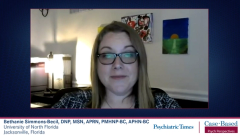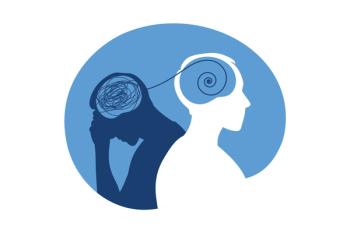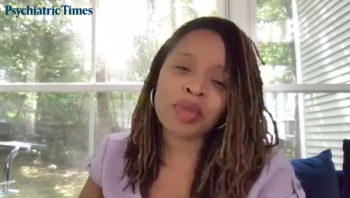
Unmet Needs in Bipolar Disorder Management
A psychiatric nurse practitioner shares gaps in care in bipolar 1 disorder treatment.
Bethanie Simmons-Becil, DNP, MSN, APRN, PMHNP-BC, APHN-BC:The roundtable discussion was fantastic. There was a variety of different types of providers. We had both psychiatrists, medical doctors, and psychiatric nurse practitioners present, and it was great to see and to hear the different points of view and the styles of treatment from my peers in the community. I really enjoyed being able to provide additional research, especially newer, more relevant research on presenting symptoms and best practices for diagnosing and identifying bipolar in the community. I enjoyed that there was open discussion about medications to use and everybody was very comfortable in sharing their preferred medication and why it was preferred. It was interesting to watch several of the providers kind of raise their eyebrows. That's something new. I might need to try that. It impressed me and it gave me hope for the psychiatric community, specifically for those of us who prescribe in the psychiatric community, just because the more we work together, the better we do for our patients. The more open communication we have as providers, the less stigma there will be associated with bipolar disorder and the more willing patients might potentially be to seek help. Further, for those of us who meet each other in the community and work together, we can also realize that we are not alone in this battle, either, and that we have valuable peers, educated professionals that can support us and work with us to help ensure best outcomes for all of our patients.
As an advanced practice educator, one of the biggest gaps I see in care of patients with bipolar disorder predominantly is consistency of management. There are different styles. Every provider has their own style and treatment and how they work with their patients and there are different types of education. Medical doctors receive very disease-focused education as that's part of the medical model. Whereas nurses receive very holistic patient education regarding symptomology to where it's not necessarily just a diagnosis, but it's all the environmental impact. What I think needs to happen for us in psychiatry is we need to combine those 2 thoughts together. We need to identify that bipolar disorder is truly a medical diagnosis and that it has enough research to support common symptomology and common presentation, which helps with ease of diagnosis. The biggest gap that I find both on the psychiatry side, as well as the nurse practitioner side, is that we tend to prescribe based upon diagnosis. As a prudent prescriber and as someone who loves the work of Dr Stephen Stahl, MD, PhD, and understanding neuroanatomy, we really need to focus our efforts on identifying the presenting symptoms of the individual because not every patient presents the same. If we focus on the presenting symptoms of the individual and we connect that to our knowledge of the brain and to the neuroanatomy and to what neurotransmitter may be in flux for that particular patient, we will prescribe more efficiently.
When a patient is presenting manic or hypomanic, we know that that's rooted in the excess of [dopamine receptor] D2 and D3. You would want to pick a medication that is going to be more focused on D2 and D3 to modulate that and help bring that patient to a more consistent level. Conversely, if you have a patient that is presenting with predominant depressive symptoms, again, we connect that to partially D2 but also serotonin. We pick a medication that modulates both that D2 and that serotonergic aspect so we don't get caught in that trap of, “OK, well, I've diagnosed you with bipolar depression so these are the only 4 medications that are approved for depression,” and those are going to be what I use because it's not a cookie-cutter model. We work in psychiatry at a detriment because there's no lab, there's no scan. There's nothing tangible that I can assess to give a finite diagnosis. It's all based on my perception and patient report. There can be so much variability in that treatment, but if we truly focus on the symptom presentation of that patient, and we tie that to our knowledge of the brain and how those symptoms are evidencing themselves and how they're connected to those changes in the brain–our medication selection is based upon that knowledge. Then, we will be more prudent providers and we will choose medications that are more appropriate for that particular individual, rather than that individual's diagnosis.
I thoroughly enjoyed the event. I was impressed with the professionals that were brought together for the case study, and I thoroughly enjoyed having multiple different perspectives and opinions in the same room because it allowed us to have open, comfortable conversation with our peers about best practice for bipolar patients. I think that moving forward, events like this can significantly improve the consistency in treatment for bipolar disorder, as well as a sense of collegiality among those who work in psychiatry. I think that with these particular types of events, the more they happen, the more attended, the more folks that are willing to take a moment and listen, I think that it will significantly improve not only our experience as psychiatric providers but our clients’ experience that come to us in need. Thank you so much for your time today. I sincerely appreciate the incredible opportunity that I had in moderating this event and being part of future education.
Transcript Edited for Clarity
Newsletter
Receive trusted psychiatric news, expert analysis, and clinical insights — subscribe today to support your practice and your patients.








